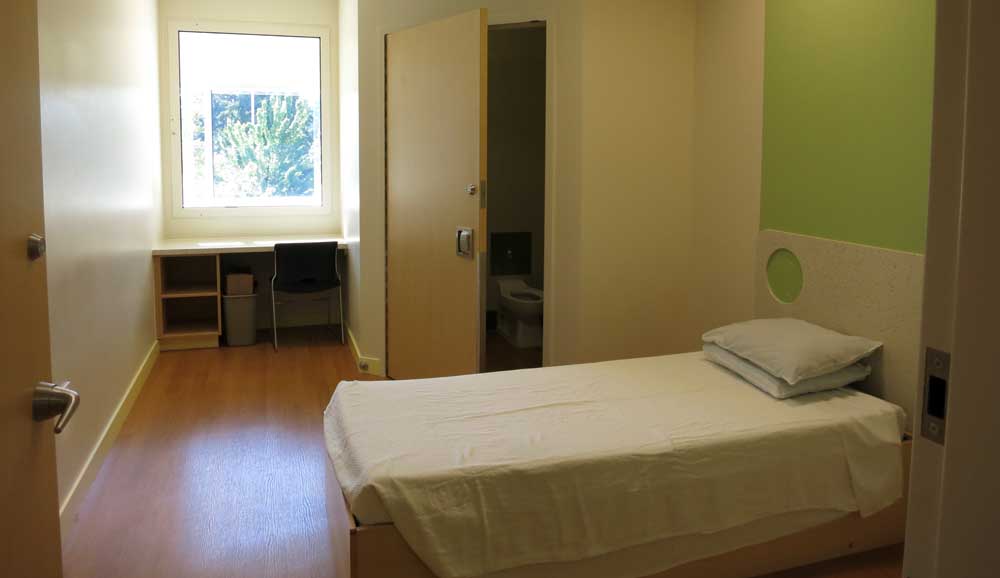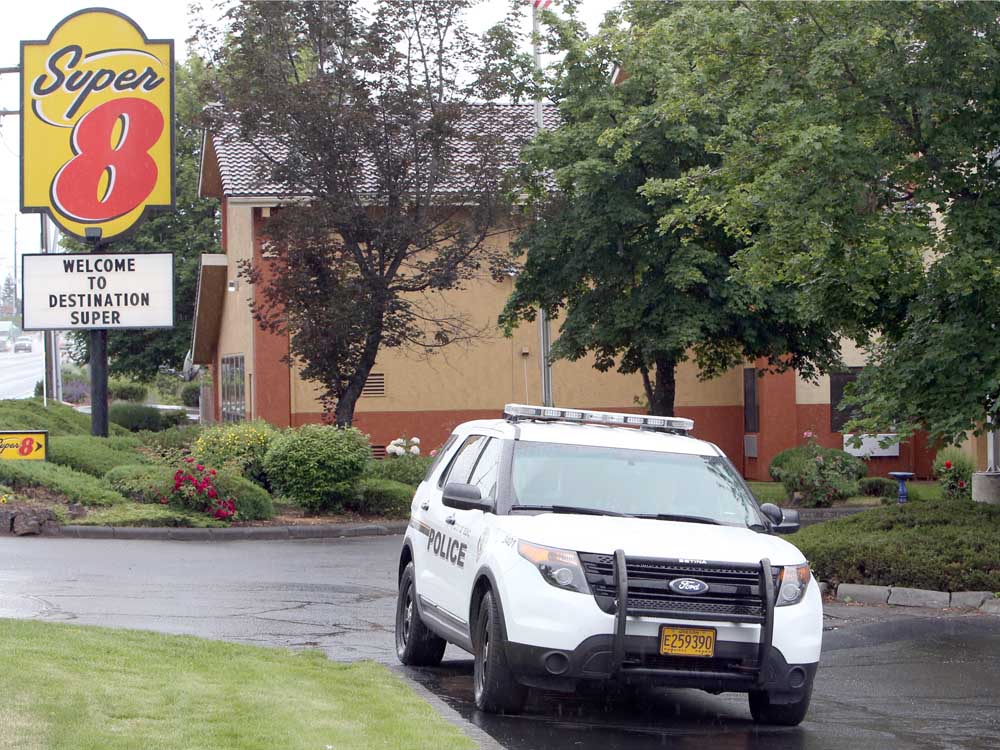Bend seeks to balance climate, housing goals, but won’t restrict natural gas for now
Published 5:45 am Wednesday, December 11, 2024

- Natural gas signage at a new residential development in southeast Bend.
Seeking to slash carbon emissions, the Bend City Council recently assessed a package of proposed building electrification policies, showing full support for education and advocacy actions but not yet for regulations or fees to restrict natural gas use in new construction.
That would put Bend on the leading edge of municipal regulations on natural gas to curb carbon emissions, but the city is proceeding cautiously, citing concerns over legal battles and potential impacts to housing production.
The city faces massive housing production needs — more than 30,000 units — in the next 20 years to keep up with growth and account for historical underproduction, according to a draft of the 2025 Oregon Housing Needs Analysis.
But close to 30% of Bend’s greenhouse gas emissions come from residences, and the city is pushing to meet goals to significantly reduce emissions in the next few decades.
The city’s Environment and Climate Committee recommended the city council explore regulations limiting natural gas piping in public rights-of-way for new construction, set nitrogen oxide emissions standards for new appliances and create fees for new buildings reliant on gas infrastructure.
“I don’t see a pathway for us to meet our climate reduction goals in our buildings without reducing natural gas in a way that goes beyond just education and outreach,” said Neil Braunsgard, environment committee chair, in an interview.
Climate goals
In 2016 Bend adopted a resolution setting goals for a 40% reduction in emissions by 2030 and a 70% reduction by 2050. Those are roughly the same targets deemed necessary that same year by the Paris Climate Agreement to hold global warming below 1.5 degrees celsius, the threshold needed to avoid severe impacts from climate change.
Formed in 2020 and tasked with prioritizing policies to reduce fossil fuels, the city’s climate committee began conversations around limiting natural gas, leading the city council to explicitly target natural gas use as an emissions reduction strategy in 2023. In October the city signed its intent to cut fossil fuels from city run buildings.
The newest set of recommendations comes as progressive cities across the country look to restrict the use of natural gas but face legal battles as a result. Berkeley, California became the first city in the nation to ban natural gas hookups in new construction in 2019, but a federal court ruled last year that federal law preempted the city from enforcing the ban. Eugene placed a ban on fossil fuels in new low-rise residential buildings in 2023 and then repealed it after pushback from business groups. Most recently, builders, restaurant and business groups sued Washington D.C. and Montgomery County, Maryland over a net-zero building code banning gas appliances.
Instead of banning gas hookups to buildings, the climate committee recommendations would restrict gas piping in city rights-of-way, effectively halting gas use in new construction, or would require lower or zero emissions standards for new appliances — an attempt to create a distinction from policies that were overturned.
Those models haven’t been tested in the courts or used by other cities, but would likely also face a legal challenge depending on wording of the final ordinance.
“We think it’s the same or similar risks,” said Senior Assistant City Attorney Michael Selkirk.
Several city councilors cautioned moving too quickly on natural gas regulation. They supported creating educational resources for builders to help install electric heat pumps, water heaters and other appliances, provide technical assistance for decarbonizing homes and advocating for electrification policy at the state level.
“For us to go in and start with a regulation, or go out there and do something that we could immediately get sued, I think puts all of this work in danger,” said Councilor Megan Perkins during a Dec. 4 work session.
Councilor Megan Norris said the regulatory and fee options needed a higher level of consultation with city committees on affordable housing and economic development, which asked the city to move slowly while ensuring climate goals don’t override others.
“We cannot support policies that would add cost, time and additional burdens to affordable and attainable housing and put the city in the crosshairs of their state mandated housing production goals,” the Bend Chamber of Commerce wrote in a Dec. 2 letter to the city council.
Meanwhile, environmental advocates have urged the city to act quickly, citing the urgency of climate change.
“We believe that the stakes really couldn’t be higher,” said Nora Harren, a spokesperson for advocacy group 350Deschutes.
Councilor Mike Riley voiced support for exploring natural gas regulation Dec. 4, asking staff to move “relatively quickly” to begin working on proposals.
“Education only gets you so far,” said Riley, who runs the environmental nonprofit The Environmental Center. “By itself, it’s not going to get the kind of change we need for the climate challenge that we face.”
He acknowledged impacts to housing could be the biggest challenge.
Impacts to housing
At the local level, no large scale analysis has been conducted on how a natural gas ban would impact housing costs. The National Association of Homebuilders and other trade construction trade associations have warned that natural gas bans would exacerbate the housing crisis.
The cost difference for developers between building new homes that use natural gas versus all electric depends on the builder, scale and home type, said Morgan Greenwood, a lobbyist for the Central Oregon Builders Association. Taking away natural gas in Bend would eliminate consistency and predictability for builders, putting affordability at risk, Greenwood said.
Bend code changes to spur affordable housing raise concerns
There is little cost difference between building with a high-quality gas heating system and a high-quality electric heating system, said Geoff Harris, president of Solaire Homebuilders, which he said was the first net-zero emissions builder in Central Oregon. Solaire builds all-electric and energy efficient custom homes, anything from deed-restricted affordable to 5,000-square feet, and is the primary general contractor for affordable homebuilder Rooted Homes, which are built to net-zero energy standards.
Harris said he is a “strong proponent” of electrification through incentives for builders, not necessarily through development code changes.
“Primarily because we’re in a housing crisis,” he said.
Incentives for builders will be part of future electrification policy discussions alongside regulations and fees.
As the city closes in on 2030 climate goals, growth has only added to emissions, said Cassie Lacy, senior management analyst with the city of Bend. From 2016 to 2021, the last year of available data, overall emissions increased, mostly due to transportation, while emissions from natural gas decreased.
Electric vehicles part of strategy to lower Bend’s carbon footprint
Commercial and residential buildings together make up more than half of city-wide emissions.
“All of this is trying to balance the playing field for development and its impact,” said Braunsgard, of the climate committee. “Climate impact is a piece we think should be considered in that equation as well.”
Lacy said the city could still make “substantial reductions” in emissions without regulating natural gas as the city’s energy source becomes cleaner. But, “It will be very very hard to meet our goals without doing that (regulating natural gas), when you’re talking about adding that many housing units,” she said.
350Deschutes seeks options for stopping pipeline expansion







